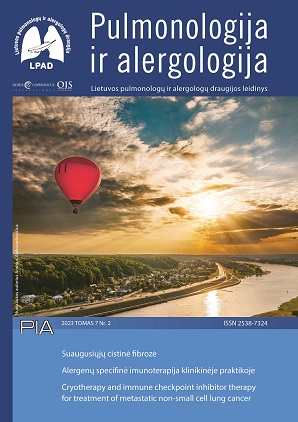NSAID‐EXACERBATED RESPIRATORY DISEASE
Abstract
Nonsteroidal anti-inflammatory drug (NSAID)-exacerbated respiratory disease (N-ERD) is a clinical condition characterized by nasal polyps, asthma, and intolerance to NSAIDs. The underlying mechanism of N-ERD involves an abnormal regulation of arachidonic acid metabolism, leading to persistent inflammation in the upper and lower airways and an exaggerated inflammatory response when NSAIDs are taken. Patients with N-ERD experience nasal symptoms such as congestion, reduced or complete loss of smell (hyposmia/anosmia), and nasal discharge, as well as lower airway symptoms, including coughing, shortness of breath, and chest tightness. N-ERD is associated with severe asthma, necessitating oral corticosteroid bursts, systemic corticosteroid dependence, and multiple endoscopic sinus surgeries. A definitive diagnosis is typically established through provocation tests with aspirin, as the in vitro test does not currently exist in clinical practice. Despite various treatment approaches, patients with N-ERD frequently experience symptom recurrence. The primary treatment strategies for N-ERD, beyond conventional therapy, include NSAID avoidance, aspirin desensitization, and the use of monoclonal antibodies. Addressing N-ERD effectively remains a significant challenge in the current medical landscape.


